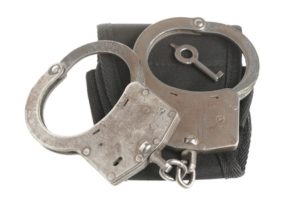 On June 22, 2018, the United States Supreme Court decided the case of State of Virginia v. Michael Currier. The principal issue was whether double jeopardy and/or collateral estoppel precluded the trial of a set of charges that were severed from the first case after the defendant was acquitted of all charges in the first case.
On June 22, 2018, the United States Supreme Court decided the case of State of Virginia v. Michael Currier. The principal issue was whether double jeopardy and/or collateral estoppel precluded the trial of a set of charges that were severed from the first case after the defendant was acquitted of all charges in the first case.
Writing for a 6-3 majority of the Court, Justice Gorsuch held in relevant part: Petitioner Michael Currier was indicted for burglary, grand larceny, and unlawful possession of a firearm by a convicted felon. Because the prosecution could introduce evidence of Mr. Currier’s prior burglary and larceny convictions to prove the felon-in-possession charge, and worried that evidence might prejudice the jury’s consideration of the other charges, Mr. Currier and the government agreed to a severance and asked the court to try the burglary and larceny charges first, followed by a second trial on the felon-in-possession charge.
At the first trial, Mr. Currier was acquitted. He then sought to stop the second trial, arguing that it would amount to double jeopardy. Alternatively, he asked the court to prohibit the state from relitigating at the second trial any issue resolved in his favor at the first. The trial court denied his requests and allowed the second trial to proceed unfettered. The jury convicted him on the felon-in-possession charge. The Virginia Court of Appeals rejected his double jeopardy arguments, and the Virginia Supreme Court summarily affirmed.
Because Mr. Currier consented to a severance, his trial and conviction on the felon-in-possession charge did not violate the Double Jeopardy Clause, which provides that no person may be tried more than once “for the same offence.” Mr. Currier argues that Ashe v. Swenson, 397 U. S. 436, requires a ruling for him. There, the Court held that the Double Jeopardy Clause barred a defendant’s prosecution for robbing a poker player because the defendant’s acquittal in a previous trial for robbing a different poker player from the same game established that the defendant “was not one of the robbers,” id., at 446.
The concept of collateral estoppel or “issue preclusion” is borrowed from civil case law. The civil concept of “claim preclusion” would be analogous to the criminal concept of double jeopardy. Issue preclusion refers to one issue in the case. Claim preclusion refers to the entire case.
